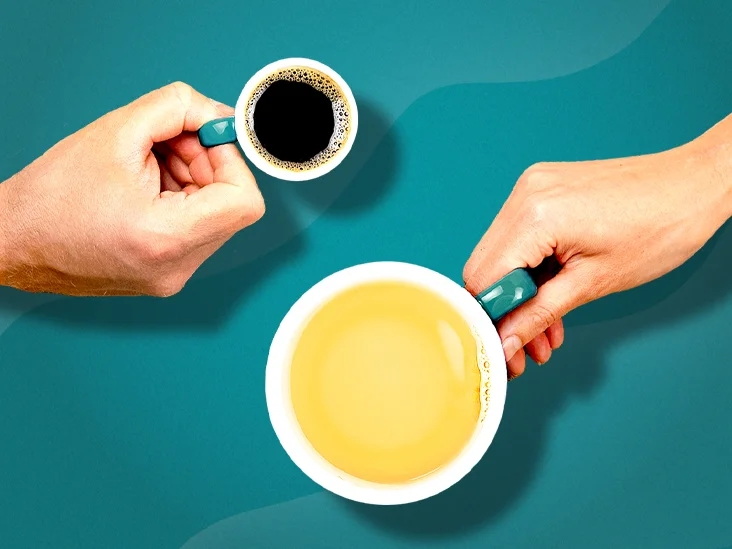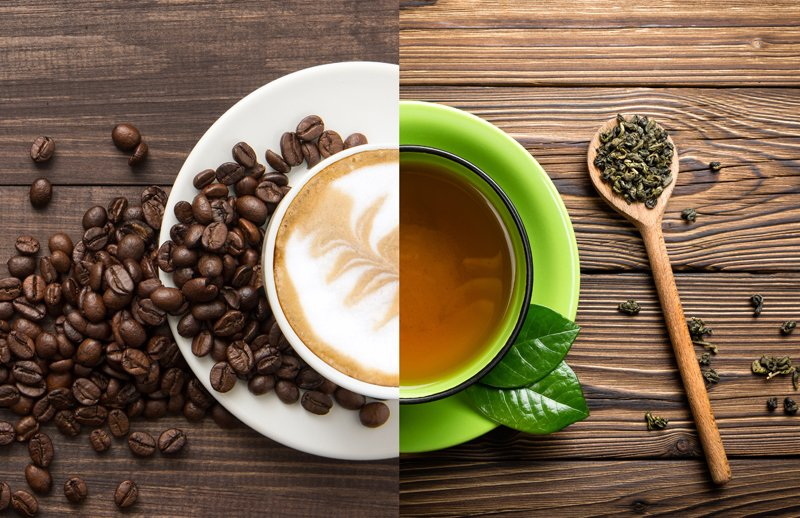Content Menu
● Understanding Green Tea Extract
>> Caffeine Content in Green Tea Extract
● Effects of Caffeine from Green Tea Extract
● Safety and Recommendations
● Comparing Green Tea Extract with Other Sources of Caffeine
● Potential Health Benefits Beyond Caffeine
● Lifestyle Considerations
● Conclusion
● FAQ
>> 1. How much caffeine is typically found in green tea?
>> 2. Does green tea extract have more caffeine than brewed green tea?
>> 3. Can I take green tea extract if I'm sensitive to caffeine?
>> 4. What are the health benefits associated with green tea extract?
>> 5. Is it safe to consume multiple servings of green tea extract daily?
● Citations:
Green tea extract is a popular dietary supplement known for its numerous health benefits, including weight loss, improved metabolism, and antioxidant properties. One common question regarding green tea extract is its caffeine content, particularly when considering a dosage of 130 mg. This article will explore the caffeine levels in green tea extract, compare it with other sources of caffeine, and provide insights into its effects and safety.

Understanding Green Tea Extract
Green tea extract is derived from the leaves of the Camellia sinensis plant. It is rich in catechins, particularly epigallocatechin gallate (EGCG), which are powerful antioxidants. The extraction process concentrates these beneficial compounds, making green tea extract a popular choice for those looking to enhance their health through supplementation.
Caffeine Content in Green Tea Extract
The caffeine content in green tea extract can vary significantly depending on the brand and formulation. Generally, here are some key points regarding caffeine levels:
- Typical Caffeine Range: A standard cup of brewed green tea contains about 30-50 mg of caffeine per 8-ounce serving. In contrast, green tea extract supplements can contain anywhere from 2 mg to over 200 mg of caffeine per serving, depending on the concentration and brand.
- Specific Example: For a dosage of 130 mg of green tea extract, the caffeine content can be estimated based on the concentration of caffeine in the product. If we assume an average concentration of around 40% caffeine in some extracts, this could translate to approximately 52 mg of caffeine in a 130 mg dose.
- Brand Variability: Different brands have different formulations. For instance:
- NOW Foods: 400 mg of green tea extract contains about 32 mg of caffeine.
- Jarrow Formulas: 500 mg of green tea extract provides roughly 40 mg of caffeine.
This variability means that consumers should always check product labels for specific caffeine content.
Effects of Caffeine from Green Tea Extract
Caffeine acts as a stimulant that can enhance alertness and energy levels. When consumed in moderation, it can provide several benefits:
- Increased Energy: Caffeine can help improve physical performance by increasing adrenaline levels and releasing fatty acids from fat tissues. This effect is particularly beneficial for athletes or individuals engaging in intense physical activities.
- Enhanced Metabolism: Studies suggest that caffeine may boost metabolic rate and aid in fat oxidation, contributing to weight loss efforts. A study published in Obesity found that participants who consumed caffeine experienced a significant increase in energy expenditure compared to those who did not.
- Mood Improvement: Moderate caffeine intake is associated with improved mood and cognitive function due to its stimulating effects on the central nervous system. Research indicates that individuals who consume moderate amounts of caffeine may experience lower rates of depression and enhanced cognitive performance.
However, excessive consumption can lead to side effects such as anxiety, restlessness, insomnia, and heart palpitations. Therefore, it's essential to monitor total daily caffeine intake from all sources.

Safety and Recommendations
The general recommendation for healthy adults is to limit caffeine intake to about 400 mg per day. This amount is considered safe for most people without significant adverse effects. However, individual tolerance varies widely; some may experience side effects at lower doses.
For those considering green tea extract supplements:
- Start Low: If you are new to caffeine or sensitive to it, starting with a lower dose (around 30-50 mg) may be wise before gradually increasing as needed.
- Consult Healthcare Providers: Especially if you have underlying health conditions or are taking medications that may interact with caffeine or green tea extracts.
Comparing Green Tea Extract with Other Sources of Caffeine
Understanding how green tea extract compares with other common sources of caffeine can help consumers make informed choices about their dietary habits. Here's a brief comparison:
| Source | Serving Size | Approximate Caffeine Content |
| Brewed Coffee | 8 oz | 95-200 mg |
| Espresso | 1 oz | 63 mg |
| Brewed Black Tea | 8 oz | 40-70 mg |
| Brewed Green Tea | 8 oz | 30-50 mg |
| Green Tea Extract | Varies (e.g., 130 mg) | Varies (e.g., ~52 mg) |
As illustrated above, while brewed coffee contains significantly more caffeine than green tea or its extracts, the latter provides a gentler stimulant effect due to its lower caffeine content combined with other beneficial compounds like L-theanine.
Potential Health Benefits Beyond Caffeine
In addition to its caffeine content, green tea extract offers several health benefits attributed to its high concentration of antioxidants:
- Weight Loss Support: The catechins found in green tea extract have been shown to assist with weight management by enhancing fat oxidation during exercise and reducing appetite.
- Heart Health: Regular consumption of green tea has been linked to improved cardiovascular health. Studies suggest that it may help lower LDL cholesterol levels and improve blood vessel function.
- Cancer Prevention: Some research indicates that the antioxidants in green tea may play a role in reducing the risk of certain types of cancer by protecting cells from oxidative stress.
- Brain Health: The presence of L-theanine in green tea has been shown to promote relaxation without drowsiness. This amino acid works synergistically with caffeine to improve cognitive performance and attention.
Lifestyle Considerations
When incorporating green tea extract into your routine, consider the following lifestyle factors:
- Dietary Balance: Ensure your overall diet is balanced and includes a variety of nutrients from whole foods. Supplements should complement a healthy diet rather than replace it.
- Hydration: Caffeine has diuretic properties; thus, it's essential to maintain adequate hydration throughout the day by drinking water alongside caffeinated beverages or supplements.
- Exercise Regimen: Combining green tea extract with regular physical activity can enhance its beneficial effects on metabolism and weight management.
Conclusion
In summary, the caffeine content in a 130 mg dose of green tea extract can vary significantly based on the specific product used but typically falls within the range of approximately 52 mg if assuming an average concentration. Green tea extract offers numerous health benefits due to its high antioxidant content and moderate caffeine levels. However, it is essential to consume it responsibly and be aware of your total daily caffeine intake from all sources.

FAQ
1. How much caffeine is typically found in green tea?
Green tea generally contains about 30-50 mg of caffeine per 8-ounce cup.
2. Does green tea extract have more caffeine than brewed green tea?
Yes, green tea extracts can contain higher concentrations of caffeine compared to brewed green tea due to their concentrated nature.
3. Can I take green tea extract if I'm sensitive to caffeine?
If you are sensitive to caffeine, it's advisable to start with lower doses or consider decaffeinated options.
4. What are the health benefits associated with green tea extract?
Green tea extract is known for its antioxidant properties, potential weight loss benefits, improved metabolism, and enhanced mental focus.
5. Is it safe to consume multiple servings of green tea extract daily?
While moderate consumption is generally safe for healthy adults (up to 400 mg of total caffeine), it's best to consult with a healthcare provider for personalized advice.
Citations:
[1] https://www.livestrong.com/article/186702-how-much-caffeine-is-in-green-tea-extract/
[2] https://www.caffeineinformer.com/caffeine-content/green-tea-extract
[3] https://www.youtube.com/watch?v=5OlyxaRgabw
[4] https://www.elo.health/articles/green-tea-extract-supplements/
[5] https://www.healthline.com/nutrition/10-benefits-of-green-tea-extract
[6] https://www.truecitrus.com/blogs/tc/clean-caffeine-in-green-tea-vs-coffee
[7] https://www.healthline.com/nutrition/caffeine-in-green-tea
[8] https://www.zhounutrition.com/blogs/the-greatness-files/green-tea-extract-q-a
[9] https://health.clevelandclinic.org/green-tea-extract-a-better-way-to-boost-energy-or-not
[10] http://www.greenskybio.com/blog5/best-answers-to-7-key-questions-about-green-tea-extract.html
[11] https://examine.com/supplements/green-tea-extract/
[12] https://www.webmd.com/vitamins/ai/ingredientmono-960/green-tea
[13] https://www.cspinet.org/caffeine-chart
[14] https://www.reddit.com/r/chemistry/comments/3gt1zo/how_much_caffeine_in_green_tea_extract/
[15] https://www.proteini.si/en/weight-loss/green-tea/ironmaxx-green-tea-extract-130-capsules
[16] https://www.bio-conferences.org/articles/bioconf/pdf/2021/02/bioconf_ils2021_02003.pdf
[17] https://www.medicalnewstoday.com/articles/269538
[18] https://dsid.od.nih.gov/dsid_database/Res%20Summ%20Green%20Tea%201-8-2-17final.pdf
[19] https://pubmed.ncbi.nlm.nih.gov/16506807/
[20] https://www.webmd.com/vitamins/ai/ingredientmono-960/green-tea
[21] https://www.livestrong.com/article/186702-how-much-caffeine-is-in-green-tea-extract/
[22] https://www.healthline.com/nutrition/10-benefits-of-green-tea-extract
[23] https://www.youtube.com/watch?v=Q8gBjZ5e3Bs
[24] https://hammernutrition.com/blogs/endurance-news-weekly/green-tea-extract-in-fully-charged
[25] https://www.youtube.com/watch?v=RIbff5iD0GQ
[26] https://pmc.ncbi.nlm.nih.gov/articles/PMC3649093/
[27] https://www.healthline.com/nutrition/green-tea-and-weight-loss

 English
English 




























